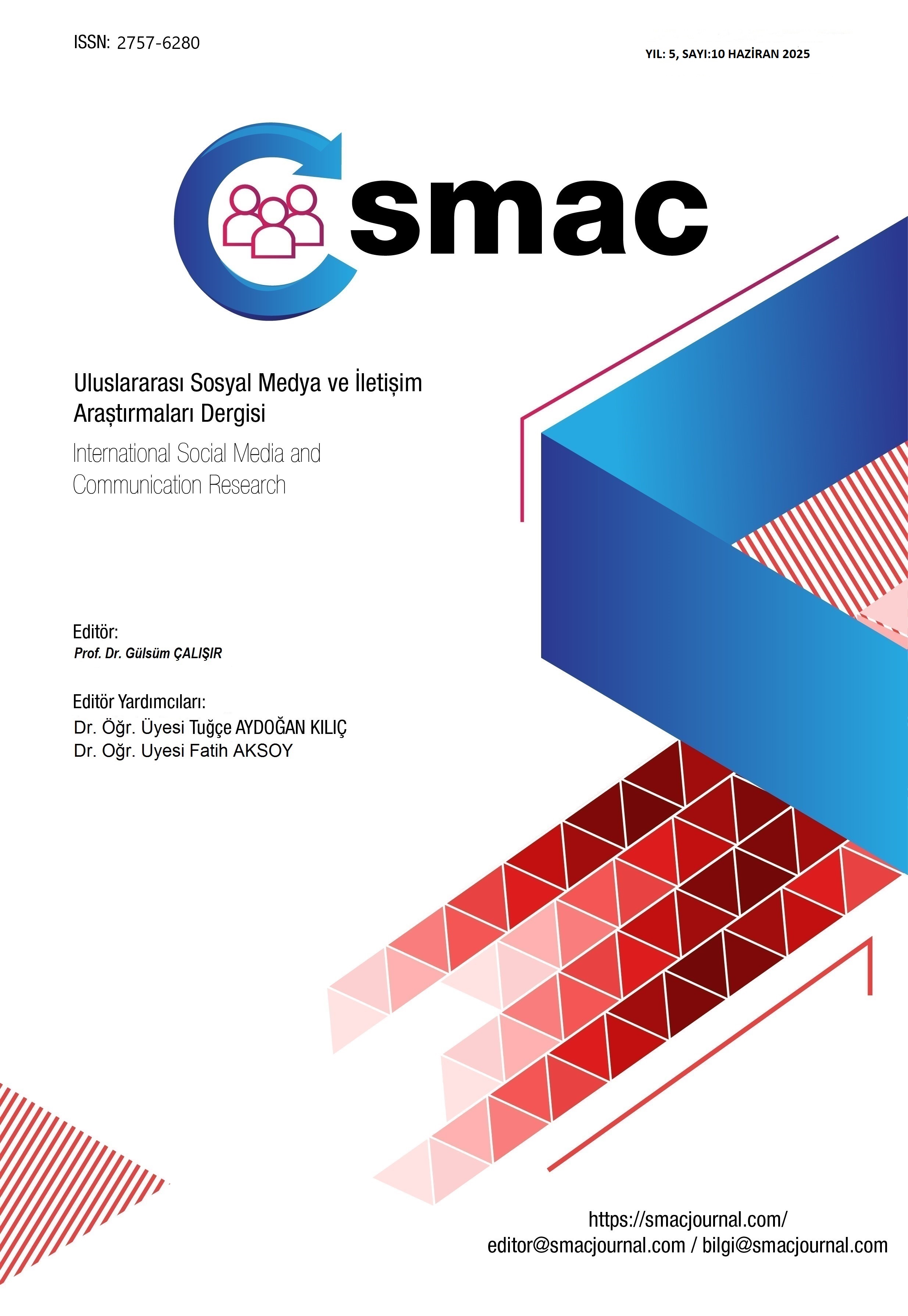ÜNİVERSİTELERDE PODCAST İÇERİĞİ ÜRETİMİ: TRT GELECEĞİN İLETİŞİMCİLERİ ÖDÜLLÜ PODCASTLER ÜZERİNE BİR ANALİZ
Author :
Abstract
2000’li yıllarda Web 2.0 ile ortaya çıkan podcast, günümüzde alternatif ve popüler bir sesli içerik üretim yöntemi olarak ön plana çıkmaktadır. Radyoların işleyiş mekanizmalarından farklılaşan podcastlerin radyoya göre daha bireysel ve özgür bir sesli içerik üretme imkânı verdiğini söylemek mümkündür. Son yıllarda büyük bir dinleyici kitlesine ulaşan podcastler mobil cihazlar için geliştirilen çeşitli uygulamalar aracılığıyla dinleyicilere de içerik üreticisi olma fırsatı sunmaktadır. Herhangi bir medya kuruluşundan bağımsız bir şekilde, sınırlı teknik bilgilerle bireysel olarak üretilebilen bu sesli içerikten üniversiteler de çeşitli faaliyetler kapsamında yararlanmaktadır. Günümüzde çeşitli amaçlarla düzenlenen yarışmalarda podcastler de kendisine yer bulabilmektedir. Bu yarışmalardan biri de sadece üniversite öğrencilerinin katılabildiği TRT Geleceğin İletişimcileri Yarışması’dır. Çalışma nitel desenli olup çalışmada 2021-2024 yılları arasında TRT Geleceğin İletişimcileri Yarışması’nda ödüllendirilen podcastleri çeşitli yönleriyle serimlemek amaçlanmıştır. Bu bağlamda ödül alan 13 podcast Spotify’ın podcast ekosistemi esas alınarak doküman ve içerik analizi ile değerlendirilmiştir. Podcast üretim sürecinin yarışma odaklı bir motivasyona sahip olduğu; bu nedenle podcast ekosisteminin gelişimi açısından hem fırsatları hem de sınırlılıkları barındırdığı tespit edilmiştir. Yarışma kriterlerinin podcast üretim sürecine yön verdiği, bu kriterlerin içerik açısından çeşitliliği ve yaratıcılığı belirli ölçülerde şekillendirdiğini söylemek mümkündür. Hem devlet hem de vakıf üniversitelerinin ödüllendirildiği bu yarışmada podcast içeriklerinin çeşitli konularda olduğu ve bu içeriklerin bilgi vermeyi amaçlayan bir anlayışla üretildiği gözlenmiştir. Ayrıca podcast ekosisteminde yer alan bazı görsel tasarım unsurlarının ise kullanıcı deneyimini olumsuz etkileyebilecek biçimde kullanıldığı görülmüştür.
Keywords
Abstract
Podcast, which emerged with Web 2.0 in the 2000s, stands out today as an alternative and popular audio content production method. It is possible to say that podcasts, which differ from the functioning mechanisms of radio, provide a more individual and free audio content production opportunity than radio. Podcasts, which have reached a large audience in recent years, offer listeners the opportunity to become content producers through various applications developed for mobile devices. Universities also benefit from this audio content, which can be produced individually with limited technical knowledge, independent of any media organisation, within the scope of various activities. Today, podcasts can also find a place in competitions organised for various purposes. One of these competitions is the TRT Future Communicators Competition, in which only university students can participate. The study has a qualitative design and the study aims to present the podcasts awarded in the TRT Future Communicators Competition between 2021-2024 in various aspects. In this context, 13 awarded podcasts were evaluated by document and content analysis based on Spotify's podcast ecosystem. It has been determined that the podcast production process has a competition-oriented motivation; therefore, it contains both opportunities and limitations in terms of the development of the podcast ecosystem. It is possible to say that competition criteria shape the podcast production process and that these criteria shape the diversity and creativity in terms of content to a certain extent. In this competition, in which both state and foundation universities were awarded, it was observed that the podcast contents were on various topics and these contents were produced with an understanding aiming to provide information. In addition, it has been observed that some visual design elements in the podcast ecosystem are used in a way that may negatively affect the user experience.





